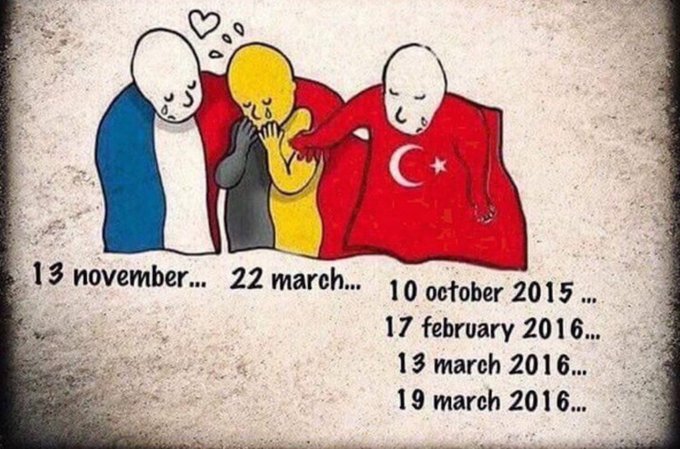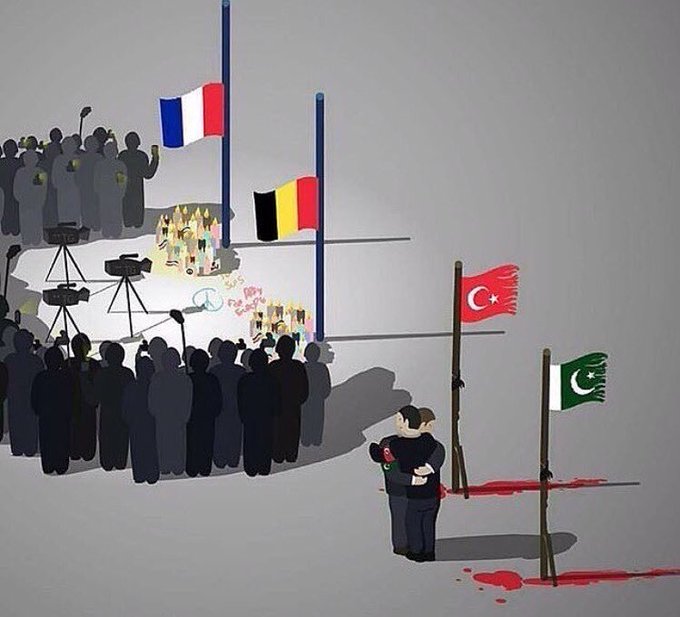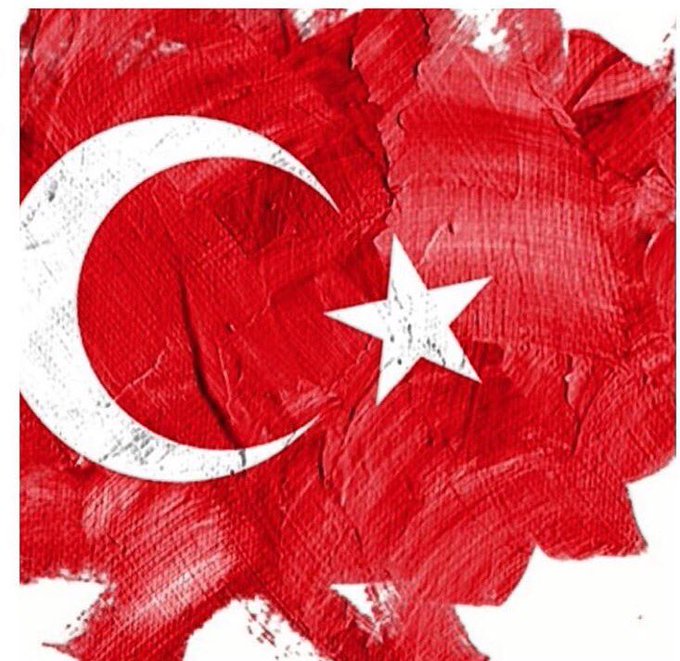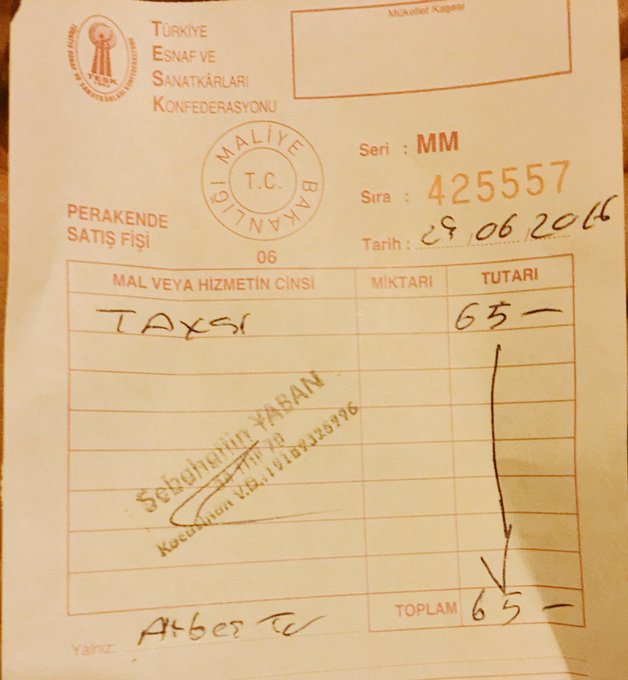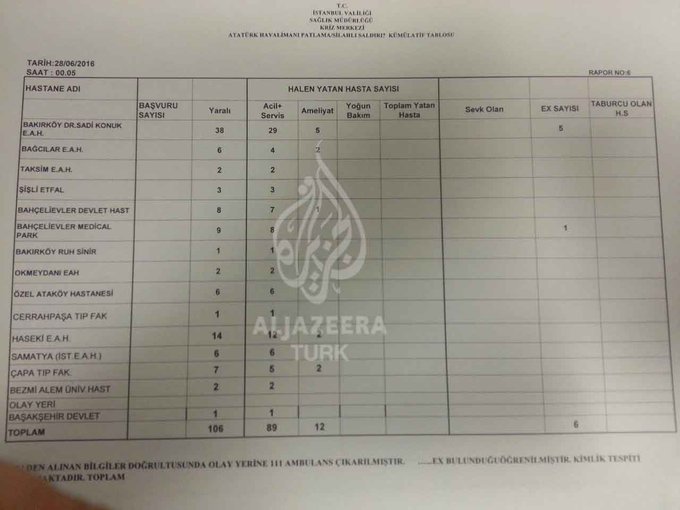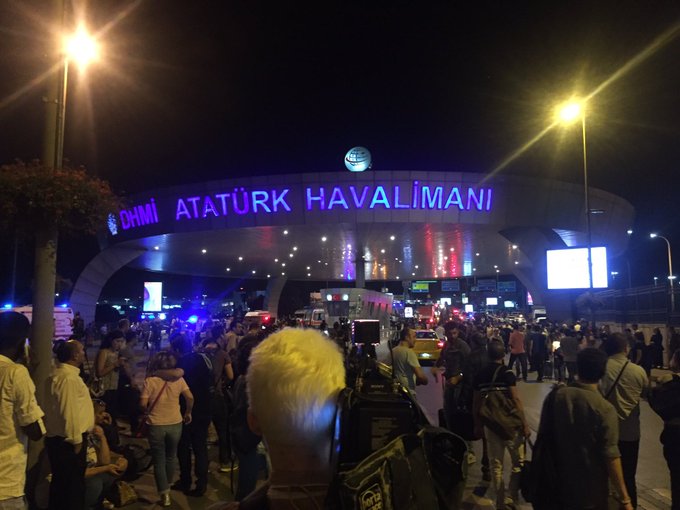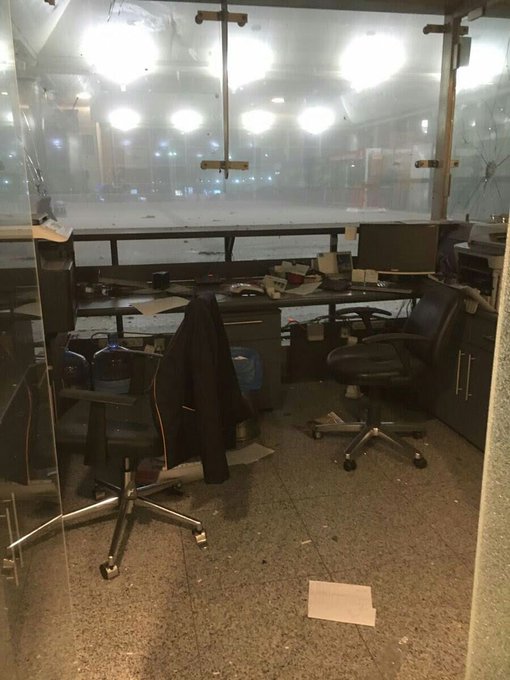Islamophobia: Understanding Anti-Muslim Sentiment in the West
Introduction
A phobia, according to the Merriam-Webster dictionary, is an exaggerated, usually inexplicable and illogical fear of a particular object, class of objects, or situation. It may be hard for the afflicted to sufficiently determine or communicate the source of this fear, but it exists. In recent years, a specific phobia has gripped Western societies - Islamophobia.
Researchers and policy groups define Islamophobia in differing detail, but the term's essence is essentially the same, no matter the source:
An exaggerated fear, hatred, and hostility toward Islam and Muslims that is perpetuated by negative stereotypes resulting in bias, discrimination, and the marginalization and exclusion of Muslims from social, political, and civic life.[1]
Islamophobia existed in premise before the terrorist attacks of September 11, 2001, but it increased in frequency and notoriety during the past decade. The Runnymede Trust in the U.K., for example, identified eight components of Islamophobia in a 1997 report, and then produced a follow-up report in 2004 after 9/11 and the initial years of the Afghanistan and Iraq wars. The second report found the aftermath of the terrorist attacks had made life more difficult for British Muslims.
In a 2011 meeting, the United Nations Alliance of Civilizations, as well as the League of Arab States, a key partner, identified Islamophobia as an important area of concern. Gallup developed a specific set of analyses, based on measurement of public opinions of majority and minority groups in multiple countries, to guide policymakers in their efforts to address the global issue of Islamophobia.
Research shows that the U.S. identified more than 160 Muslim-American terrorist suspects and perpetrators in the decade since 9/11, just a percentage of the thousands of acts of violence that occur in the United States each year. It is from this overall collection of violence that "an efficient system of government prosecution and media coverage brings Muslim-American terrorism suspects to national attention, creating the impression - perhaps unintentionally - that Muslim-American terrorism is more prevalent than it really is." Never mind that since 9/11, the Muslim-American community has helped security and law enforcement officials prevent nearly two of every five al Qaeda terrorist plots threatening the United States[2] and that tips from the Muslim-American community are the largest single source of initial information to authorities about these few plots.[3]
Islamophobia affects more than a small fringe group of Muslims. Through various research vehicles and global polling efforts, Gallup has collected a wealth of data detailing public opinion about various aspects of respect, treatment, and tolerance relative to Muslims worldwide. This brief serves as a snapshot of opinion and thought displayed by people from multiple countries, regions, and communities - findings that chronicle perceptions associated with Islamophobia globally.
Respect and Fair Treatment
Globally, many Muslims report not feeling respected by those in the West. Significant percentages of several Western countries share this sentiment, saying that the West does not respect Muslim societies. Specifically, 52% of Americans and 48% of Canadians say the West does not respect Muslim societies. Smaller percentages of Italian, French, German, and British respondents agree.
Looking specifically at data from the U.S., U.K., France, and Germany, opinions about respect in the West for Muslim societies generally stayed consistent from 2008 to 2011, aside from a 9-percentage-point decrease among Germans.
Several elements can affect the interactions and degree of respect between Muslim and Western societies. Differences in culture, religion, and political interests may shape one population's opinion toward the other. Definitions of Islamophobia tend to attribute fear or hatred of Muslims to their politics or culture, and to Islam and the religiosity of Muslims.
When asked where they think tensions between the Muslim and Western worlds originate, answers vary. Those in Middle East and North Africa (MENA) nations and in the U.S. and Canada equally cite religion and political interests as the primary cause of tensions. Sub-Saharan Africans more often cite religion than politics, while Europeans say political interests are the driving force behind Muslim-West tensions.
Religion and culture outpace politics across all regions surveyed as the root cause of tension between Muslim and Western worlds. This is significant in discussions about Islamophobia, considering political interests can vary and change while cultural and religious differences are more ingrained within populations.
Recent examples of Islamophobia exist within several countries. In late 2009, the largest party in the Swiss parliament put to referendum a ban on minaret construction. The government opposed the ban, citing harm to the country's image - and particularly Muslims' views of Switzerland. Nearly 60% of Swiss voters and 22 out of 26 voting districts voted in favor of the ban, leading to cries of Islamophobia by leaders in countries such as Pakistan and organizations such as the United Nations.
In the month following the referendum, Gallup asked a representative sample of Swiss adults a series of questions about the issue specifically and Muslim rights in general. Most Swiss say that religious freedom is important for Swiss identity. About one-third agree that there is an irresolvable contradiction between liberal democracy and Islam. However, the Swiss are more likely to disagree (48%) than agree (38%) with that statement. Rather, 84% say it is possible for a Muslim to be a good Swiss patriot. When asked if those in the Swiss Muslim community have reason to believe they have been discriminated against in the wake of the minaret ban, two-thirds (68%) say no. Furthermore, most Swiss say they do not believe that the recent belief that Switzerland was being seen as willing to infringe on the rights of its Muslim minority in the wake of the referendum on minarets has harmed Switzerland's reputation in the international community.
Despite a very public debate on the banning of a religious symbol of Islam, much of the Swiss population did not believe that the Swiss Muslim community should feel discriminated against.
In 2008, Gallup asked representative samples from a subset of majority-Muslim countries about public perceptions of fair treatment of Muslims in the U.S., France, Britain, and China. While about one-third of this subset say that Muslims living in each of those countries are treated as equal citizens regarding their rights and freedoms, about one-quarter of respondents say these Muslims are not. About 40% of this subset of majority-Muslim countries say they don't know how these four countries treat their Muslim residents. The notion that Muslims in these countries are treated unfairly supports the idea that Muslims in general believe that unfair treatment of Muslims - a component of Islamophobia - does exist in Western societies.
Research in a subset of majority-Muslim countries from within the MENA region, though, finds that more than one-half do not agree that Muslims in the West are treated as equal citizens. One-quarter of this population say Muslims in the West receive equal treatment, while about one-fifth say they do not know. This is another example of Muslims globally seeing the West as mistreating Muslims in their countries. This belief adds to the perception of Muslims being excluded from social, political, and civic life in Western societies.
Majorities of representative populations within majority-Muslim countries globally say each of five actions Western societies could take are very important to showing respect to Muslim societies. About 8 in 10 say it would be very important to them, personally, if Western societies were to abstain from desecrating the Qur'an and other Muslim religious symbols. About 6 in 10 say it would be very important to them if those in the West treated Muslims fairly in the policies that affect them, protect the rights of Muslim minorities in these societies, accurately portray Muslims in Western media, and work with Muslim societies as equal partners on issues of mutual interest.
Prejudice
According to "Fear, Inc.," a report by the Center for American Progress, a network of misinformation experts actively promotes Islamophobia in America. The promotion of Islamophobia creates both prejudice and discrimination among the general population. Prejudice plays a key role in the existence and proliferation of Islamophobia. Prejudice alone, as a negative judgment, opinion, or attitude, is a detriment to a population's overall wellbeing. Prejudice combined with overt actions, rising to the level of discrimination, creates a dangerous environment for its victims. Gallup analyses offer an examination of prejudice against Muslims and Islam in a number of countries and regions globally.
In the U.S., about one-half of nationally representative samples of Mormons, Protestants, Catholics, Muslims, and Jews agree that in general, most Americans are prejudiced toward Muslim Americans. Specifically, 66% of Jewish Americans and 60% of Muslim Americans say that Americans in general are prejudiced toward Muslim Americans.
Muslims (48%) are more likely than Americans of other major religious groups to say they, personally, have experienced racial or religious discrimination in the past year. Muslim Americans are more than twice as likely as U.S. Jews, Catholics, and Protestants to say they experienced such discrimination in the past year.
The 48% of Muslim Americans who say they experienced racial or religious discrimination is on par with Hispanic Americans (48%) and African Americans (45%), as calculated from a combination of these same groups. Arab Americans (52%) are most likely to say they experienced this type of discrimination.
Self-reported knowledge, whether accurate or not, about the religion of Islam seems to affect Americans' feelings of prejudice toward Muslims. Of Americans who say they have no personal prejudice toward Muslims, 29% say they have no knowledge at all about Islam. In fact, those who say they hold no prejudice toward Muslims are more likely than those who say they hold a little, some, or a great deal of prejudice to say they have no knowledge about Islam.
Even among Americans who report no personal prejudice toward Muslims, one-third say they have an unfavorable opinion about Islam (36%). Unsurprisingly, those indicating they have a great deal of prejudice toward Muslims are the most unfavorable about Islam (91% unfavorable). That one-third of those with no reported prejudice have an unfavorable opinion of Islam is alarming because it indicates that those who harbor no reported prejudice for the people maintain negative views about the religion.
People who display a personal prejudice toward Muslims are not negative about religion in general or minority religions overall. For example, Americans who say they are at least a little prejudiced against Muslims express favorable opinions about Judaism, regardless of the degree to which they hold prejudice against Muslims.
Familiarity with individual Muslims makes a small difference in reported levels of personal prejudice toward Muslims. Fifty-three percent of those Americans who say they hold no prejudice toward Muslims say they know someone who practices Islam. Comparatively, 44% of those who say they have a great deal of prejudice toward Muslims say the same.
The greater their self-reported prejudice toward Muslims, the more likely Americans are to say most Muslims around the world do not want peace and are not accepting of other religions and of people of races other than their own. Regardless of personal prejudice against Muslims, at least one in five Americans say that most Muslims around the world are not accepting of other religions and of people of different races other than their own. In fact, about one-third of those reporting no prejudice toward Muslims say Muslims around the world are not accepting of other religions.
Gallup finds Muslim Americans, however, are among the most integrated religious groups in the U.S. Gallup Religious Tolerance Index, which measures people's attitudes toward religious faiths different from their own and ranks survey respondents by three categories: Isolated, Tolerant, and Integrated people (see sidebar for definitions).
Among U.S. religious groups, 44% of Muslim Americans are integrated, on par with Mormons (46%) and greater than Jewish Americans (36%), Protestants (35%), and Catholics (34%).
When examining religious tolerance globally, the U.S. and Canada and sub-Saharan Africa rate as the most integrated regions Gallup studied. Respondents from sub-Saharan Africa are also most likely to explain the root causes of tensions between Muslim and Western societies as religious. MENA and Asia are the most isolated regions, along with Europe and the former Soviet Union.
Muslim respondents globally are no different from Western societies in their level of integration and openness to people of other faiths.
Gallup's Global Practice Leader for Faith Communities, Dr. Albert L. Winseman, developed the Religious Tolerance Index in 2002 with Gallup scientists Dr. Jim Harter and Julie Hawkins to measure Americans' attitudes toward religious faiths that are different from their own. The Index is based on respondents' level of agreement with the following five statements on a scale of "1" (strongly disagree) to "5" (strongly agree):
· I always treat people of other religious faiths with respect.
· Most religious faiths make a positive contribution to society.
· I would not object to a person of a different religious faith moving next door.
· People of other religions always treat me with respect.
· In the past year, I have learned something from someone of another religious faith.
From the combination of their answers, Gallup classifies populations as:
Isolated: Isolated individuals tend not to be members of any particular faith group, but if they are, they tend to believe in the truth of their perspective above all others. They do not want to know about other religions. They also neither respect nor feel respected by those of other faiths.
Tolerant: Tolerant individuals have a "live-and-let-live" attitude toward people of other faiths, and they generally feel that they treat others of different faiths with respect. However, they are not likely to learn from or about other religions.
Integrated: Integrated individuals go beyond a "live-and-let-live" attitude and actively seek to know more about and learn from others of different religious traditions. They believe that most faiths make a positive contribution to society. Furthermore, integrated people not only feel they respect people from other faith traditions, but they also feel respected by them.
In America, prejudice toward Muslim Americans exists among both men and women, young and old, uneducated and learned. Still, there are some differences in prejudice levels within different demographic groups. Men are more likely than women, for example, to say they have some or a great deal of prejudice toward Muslims. Those who report a great deal of prejudice toward Muslims are more likely than those who report none or smaller levels of prejudice to have completed only a high school-level education. And those who report a great deal of prejudice toward Muslims are more likely than those with lesser or no such prejudice to be married. Higher levels of prejudice toward Muslims do not correlate with age and urbanicity, though.
As Americans' self-proclaimed prejudice toward Muslims increases, so too does the likelihood of claiming the Republican party as their political affiliation. Fifty percent of those who report a great deal of prejudice toward Muslims say they are Republicans, compared with 17% of those who identify as Democrats and 7% as independents. Those who report no prejudice toward Muslims are more likely to be Democrats than Republicans, 39% to 23%, respectively.
Loyalty to the United States
Gallup asked Americans whether they think Muslim Americans are loyal or not loyal to the U.S. Perceptions of disloyalty tend to fuel the flames of Islamophobia. If one believes that Muslims are not loyal, one may also believe that Muslims should be feared, not trusted, and not treated fairly. A feeling that Muslim Americans are disloyal to the U.S. is examined as a crucial component of Islamophobia. Women are more likely than men to think that Muslims in American are not loyal to the U.S. Those who think Muslim Americans are loyal to the country are younger than those who say Muslim Americans aren't loyal to the U.S. And while most Americans (87%) strongly agree that they would not object to a person of a different religion living next door to them, those who say Muslim Americans are loyal to the U.S. are more likely than those who don't to strongly agree that they would not object to neighbors of a different faith.
Americans who think their Muslim peers are loyal to the U.S. are more likely than those who question this loyalty to have confidence in a number of major U.S. institutions. Specifically, those who say Muslim Americans are loyal to the country are more likely to say they themselves have confidence in the U.S. judicial system (63% vs. 41%), in honesty of elections (49% vs. 27%), in the media (29% vs. 14%), in the Federal Bureau of Investigation (73% vs. 61%), and in local police (82% vs. 75%). The exception to this is Americans' confidence in the military, which is slightly greater among those who say Muslim Americans are not loyal to the U.S. However, most Americans say they have confidence in the military, regardless of their opinion about Muslim Americans' loyalty.
Overall, one-third of Americans say they think Muslim countries have a very unfavorable opinion of the U.S. People who say Muslim Americans are not loyal to the U.S. are much more likely than those who say Muslim Americans are loyal to think people in Muslim countries harbor very unfavorable views of the U.S. Overall, though, majorities of Americans who say Muslim Americans are loyal or not loyal to the U.S. think people in Muslim countries have at least somewhat unfavorable views of America.
Of those who say Muslim countries have unfavorable views of America, more than one-half (57%) say it is based mostly on misinformation provided by the media and government in those countries about what the U.S. has done, while about one-third (32%) say it is mostly because of what the U.S. has done. Those who say Muslim Americans are not loyal to the U.S. are much more likely to say these unfavorable views in Muslim countries are because of misinformation by these countries' media and government (70%), and not based on past U.S. actions (17%). Those who say Muslim Americans are loyal to the U.S. are still more likely to say unfavorable views in Muslim countries are due to misinformation (54%) than to U.S. actions (35%).
Two-thirds of Americans surveyed in this particular study say that religion is an important part of their daily lives. Those who say Muslim Americans are not loyal to the U.S. are more likely than those who say Muslims are loyal to claim religion is an important part of their daily life (74% vs. 65%).
European Muslims Feeling the Pressure
Gallup collected data in 2008 from representative samples in Germany, France, and the U.K., focusing on several issues related to the social and cultural integration of Muslim communities in these three countries. And while majorities of the adults in these countries agree that people from minority groups enrich the cultural life of their nations, sizable minorities of these respondents express fear about certain aspects of Muslim culture.
Only the general population in the U.K. includes a sizable minority - more than one-quarter - that says people with different religious practices than theirs threaten respondents' way of life. The Muslim populations in France, Germany, and the U.K. are less likely than the general public in these countries to say those with differing religious practices threaten their way of life.
Between 16% and 21% of people in France, Germany, and the U.K. say they would not like Muslims as their neighbors, similar to the percentages of each country's general population that say they would not like homosexuals as neighbors. Generally, people in these countries are more likely to say they would not like Muslims as neighbors than they are to say the same about Jews, Christians, atheists, blacks, and Asians. An exception exists in the U.K., though, where 22% of people say they would not like immigrants or foreign workers as neighbors.
Significant proportions of the French, German, and British publics consider different Muslim practices and relationships threatening. For example, 16% of Germans, 30% of British, and 39% of French say that wearing the hijab - the traditional head covering worn by Muslim women - is a threat to European culture. Similar proportions associate Muslims with terror, as 23% of Germans, 25% of the French, and 34% of the British say that Muslims are sympathetic to al Qaeda.
Overall, however, large majorities of French (90%), British (90%), and German (95%) respondents say they have not experienced racial or religious discrimination in the past year. Among Muslims in each of these three countries, those in France and Germany are significantly more likely than the general population to say they experienced discrimination in the past year.
Addressing Islamophobia by Bringing People Closer Together
Proportions of the general populations in these three countries are reluctant to have Muslims as neighbors. This reluctance manifests itself in people's decisions of whether or not to live in diverse communities. However, individuals living in mixed communities might be most open to those different from themselves, and least likely to be Islamophobic.
The general populations in France (49%), Germany (51%), and the U.K. (48%) are most likely to say they live in a neighborhood generally comprised of people who share their ethnic and religious backgrounds. Significant percentages of each population, though, say their neighborhoods are made up of a mix of people, including those who share their ethnic and religious backgrounds and others who do not. Specifically, 40% of French, 38% of German, and 43% of British respondents say they live among diverse neighborhoods. Muslims in France (74%), Germany (53%), and the U.K. (54%) are more likely to say they live in diverse neighborhoods than mostly homogenous ones.
Gallup studied more closely what types of neighborhoods people in each of these three European countries say they would live in if they could.
- In France, people are most likely to want to live in neighborhoods with a mix of people of varying religious and ethnic backgrounds, regardless of where they currently live. Fifty-two percent of those who live in a more homogeneous community would prefer a diverse neighborhood, and 80% of those who currently live in a more diverse neighborhood or local area would want to stay in such a neighborhood.
- In the U.K., people are more apt to prefer a community similar to the one in which they currently reside. Specifically, 55% of those who live in a mostly homogenous neighborhood now would prefer to live in that same type of situation, while 80% of those who live in a diverse neighborhood currently would prefer that if they could live in any neighborhood in the country.
- Those in Germany who live among people of mostly similar religious and ethnic backgrounds are somewhat split between wanting to live in a mostly homogenous neighborhood (42%) or in a more varied one (48%) if they could chose anywhere in the country to live. Those who already live among people of different religious and ethnic backgrounds, though, are much more likely to say they would choose the same type of neighborhood (74%) than to reside among mostly similar people (19%) if given the choice.
In Germany, France, and the U.K., though, Gallup found that isolated individuals are more likely than tolerant and integrated people to say they live among people with mostly similar religious and ethnic backgrounds. Integrated (70%) and tolerant (65%) people are more likely than isolated individuals (49%) to say they live in more diverse neighborhoods.
Additionally, isolated respondents in Germany, the U.K., and France are more likely than tolerant and integrated respondents to say they would not like Muslims as neighbors. The same holds true when considering whether they would want immigrants or foreign workers as their neighbors.
Isolated people in France, the U.K., and Germany are more likely than their tolerant and integrated counterparts to say women who wear the hijab are a threat to European culture. Conversely, people are more likely to say the wearing of the hijab is an enrichment to European culture as they move from isolated to tolerant to integrated, as measured by the Religious Tolerance Index.
People who are isolated (38%) are more likely than those who are tolerant (22%) or integrated (15%) to say Muslims are sympathetic to al Qaeda. Those who are isolated (29%) are also more likely than tolerant (13%) or integrated (6%) people to agree that others with different religious practices than their own threaten their way of life.
Within key Western societies, there are genuine negative perceptions, prejudices, and discriminations targeted against Muslims. Seeing Muslims as not loyal, voicing prejudice against Muslims, and avoiding Muslims as neighbors are all symptoms of Islamophobia that exist in the West. However, these feelings do not characterize Western countries. They are generally shared by a subset of the general population, though they exist in substantial enough numbers to draw both attention and concern. The very existence of Islamophobia is something to be addressed. The degree to which individuals expressing Islamophobia have particular views of Muslims in their communities, Muslims globally, and Islam as a religion is genuine and quantifiable with measurable outcomes.
Survey Methods
[1] Wajahat Ali, Eli Clifton, Matthew Duss, Lee Fang, Scott Keyes, and Faiz Shakir, "Fear, Inc.: The Roots of the Islamophobia Network in America" (Washington, D.C.: Center for American Progress, 2011), available at http://www.americanprogress.org/issues/2011/08/pdf/islamophobia.pdf
[2] Alejandro J. Beutel, "Data on Post-9/11 Terrorism in the United States" (Washington, D.C.: Muslim Public Affairs Council, 2011), available at http://www.mpac.org/assets/docs/publications/MPAC-Post-911-Terrorism-Data.pdf
[3] Charles Kurzman, "Muslim-American Terrorism Since 9/11: An Accounting" (Chapel Hill, NC: Triangle Center on Terrorism and Homeland Security, 2011), available at http://sanford.duke.edu/centers/tcths/about/documents/Kurzman_Muslim-American_Terrorism_Since_911_An_Accounting.pdf
[4] Please refer to the Gallup Muslim-West Perceptions Index: Inaugural Findings report for methodology.
[5] Please refer to the Gallup Muslim-West Perceptions Index: Inaugural Findings report for methodology.
[6] Data appear in Abu Dhabi Gallup Center report Measuring the State of Muslim-West Relations: Assessing the "New Beginning," page 35.
[7] Results are based on face-to-face interviews with approximately 1,000 adults in each country in the regions listed, aged 15 and older, from 2008 through 2010.
